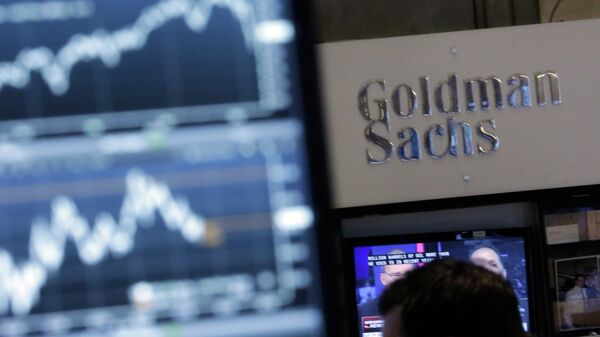Kristian Rouz — The Federal Bureau of Investigations (FBI) and the US Department of Justice (DoJ) have initiated scrutiny of Goldman Sachs Group's alleged corruption and money laundering activities in Malaysia. A possible international scandal and a destabilizing factor for US financial markets, the joint FBI-DoJ probe will examine Goldman Sachs' position as advisor to a Malaysian development fund, which is presumably politically connected enough to have established a profitable business for several years. The US authorities said they are only gathering information at this point, without accusing Goldman Sachs of any irregularities so far; however, this case might become a turning point in the US government's control over corporate America.
1MDB performed several transactions, channeling money to PM Razak's bank accounts, during the period when Goldman Sachs acted as advisor to the fund. The Malaysian authorities were intending to hush up the affair, as the nation's attorney general said on Tuesday that his decision to put a stop to the Malaysian central bank's investigation was motivated by lack of evidence of the fund's circumventing the law.
Naturally, questioning whether the state-controlled entity allegedly acted to financially benefit one of the highest-ranking officials in the country is a sensitive matter, and now the US might obtain a lever of pressure upon Razak's cabinet, should the FBI and DoJ discover anything particularly interesting.
The FBI said they "have yet to determine if the matter will become a focus of any investigations into the 1MDB scandal."
Goldman Sachs is also under pressure, as the financial firm has several episodes of misconduct of its own. Goldman's deals with Libyan Investment Authority several years ago stirred tension between Goldman and the US Securities and Exchange Commission (SEC) in the autumn of 2014 — back then, the SEC supported the Libyans' claim at the High Court of London. The bank gained some $350 mln from nine projects in Libya (from the sale of complex structured products) exposing the Libyan fund to over $1 bln in losses.
Now that the US authorities might have thoroughly watched the Goldman operations after the Libyan scandal, yet another episode of Wall Street corruption is being exposed to the broader public. This is a win-win scenario for Washington, as it obtains leverage on both the Malaysian government (which is a key player in the secretive ongoing TPP discussions) and strengthens its grip on Wall Street; the 1MDB case might further cement the US' role as an international arbitrator on financial disputes.




